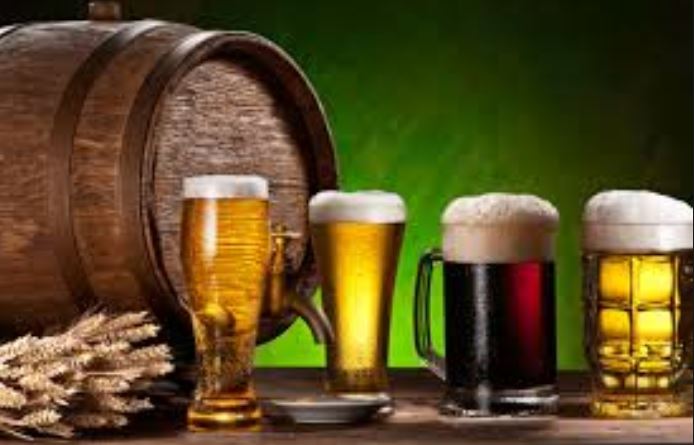
Belgium has more than 250 active breweries in a country with a population just over 11 million. It’s a business line so unique that in 2016, Unesco set the country’s beer industry as part of its intangible cultural heritage.
I recently took a trip through Belgium, riding from one city to the next, visiting ancient abbeys and breweries to learn about the rich beer culture this country has to offer.
My trip started in the historic city of Bruges, and from there I cycled through Gent, Antwerp, Leuven and Liege, stopping in each city to visit its ‘local brewery’.
These breweries were a good mix of small family-owned breweries, as well as those with a massive production line and brands that are commercially successful internationally.
There are several styles of beers produced, from trappist, abbey and pils to lambic, tripel, ales and stouts. The list is pretty long – with several seasonal and festive beers thrown in. Belgium’s beer culture is quite unique and any visitor will immediately notice that the locals love for their brew.
Most of the beers are produced in family-owned breweries that have been passed down from one generation to the next over the past few centuries, though there are still brands brewed by monks, like Chimay, and others brewed by industry giants like AB InBev’s Stella Artois.
A few things stood out that have made these breweries and their brands, such as Duvel, Leffe and La Chouffe, international successes. Here’s the summary – and maybe you can find some inspiration for your own business.
What you need:
1. Automation
Aside from a few breweries within the Brussels area, most breweries have modernised their brewing process. Traditionally, a brewmaster would be involved in a great amount of physical work, as well as having a significantly large workforce to help with the brewing.
This has now been replaced with an automated process where the brewmaster is more of a process engineer who ensures quality is maintained and achieved even with automation. Automation has helped smaller brewers scale up production, with some doubling or even tripling their output.
The process improvement has also reduced the amount of water needed to produce a litre of beer by around 40 per cent. This has seen the ratio go down from 10 litres of water for one litre of beer to 6:1 now.
2. Consumer experience
Brewery tours are starting to be part of what sets a brand apart from its competitors. Consumers want to experience the brand, interact with it and feel like they are part of the process. Belgium has been quite successful at doing this.
Stay informed. Subscribe to our newsletter
Through the creation of a brewery experience, visitors can see how their favourite beers are created through interactive tours that take one on a historic journey through time to experience the evolution of brewing. To cap it all, tours end with elaborate tasting session, where one learns how to pair beers (unfiltered versions), cheeses and various type of foods.
3. Globalisation
As Belgian beers continue to proliferate the international market, we can see a correlation between the increased production and global outreach. For instance, one brewery was able to increase its annual production from two million litres to six million litres over the last four years as its export volumes soared so that it now sells its brand in more than 35 countries.
4. The Belgian effect
They say charity begins at home, and the Belgians certainly live by this saying, taking pride in their beer culture. Every city celebrates its local beer, and as you move from one city to the next, you can’t help but notice the home support, with bars carrying the local brand on tap (draft). Beer is more than just a drink to Belgians; it’s part of their culture, a source of livelihood that has been part and parcel of their identity for centuries.
In one case, locals in Bruges, through a crowdfunding effort, were able to contribute towards the construction of a 3.4-kilometre pipeline that connected their local brewery to a bottling plant. The brewery rewarded the locals who supported them with a lifetime supply of beer.
Based on statistics from the Belgian foreign trade agency, as of 2017, beer exports contributed around $1.7 billion (Sh170 billion) to the economy. This represents around 11.4 per cent of the world total global beer exports, with most of the growth being seen in exports to Asian countries like China and South Korea.
 The Standard Group Plc is a
multi-media organization with investments in media platforms spanning newspaper
print operations, television, radio broadcasting, digital and online services. The
Standard Group is recognized as a leading multi-media house in Kenya with a key
influence in matters of national and international interest.
The Standard Group Plc is a
multi-media organization with investments in media platforms spanning newspaper
print operations, television, radio broadcasting, digital and online services. The
Standard Group is recognized as a leading multi-media house in Kenya with a key
influence in matters of national and international interest.
 The Standard Group Plc is a
multi-media organization with investments in media platforms spanning newspaper
print operations, television, radio broadcasting, digital and online services. The
Standard Group is recognized as a leading multi-media house in Kenya with a key
influence in matters of national and international interest.
The Standard Group Plc is a
multi-media organization with investments in media platforms spanning newspaper
print operations, television, radio broadcasting, digital and online services. The
Standard Group is recognized as a leading multi-media house in Kenya with a key
influence in matters of national and international interest.










